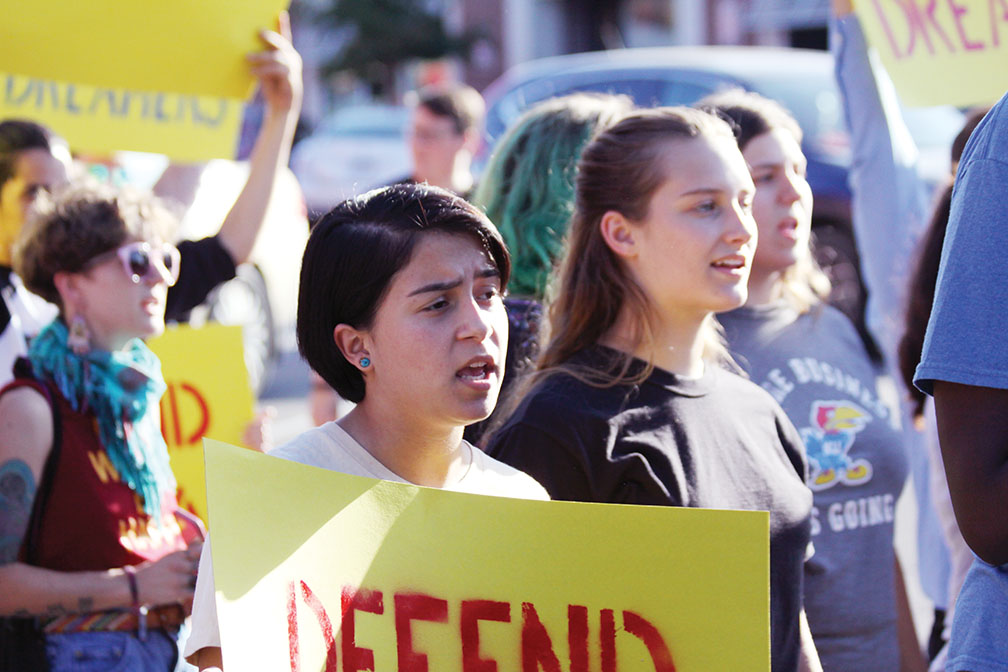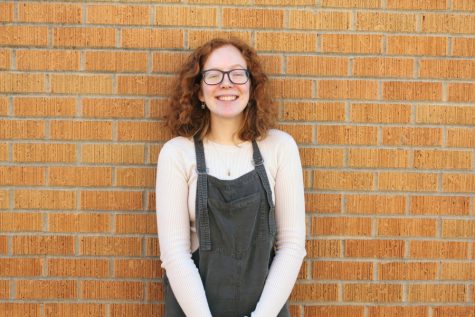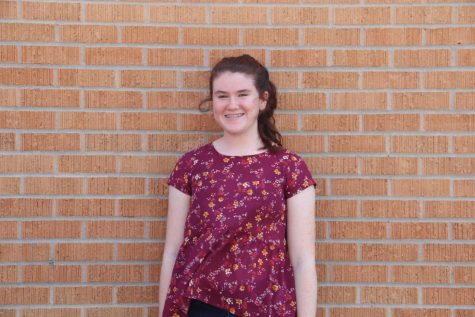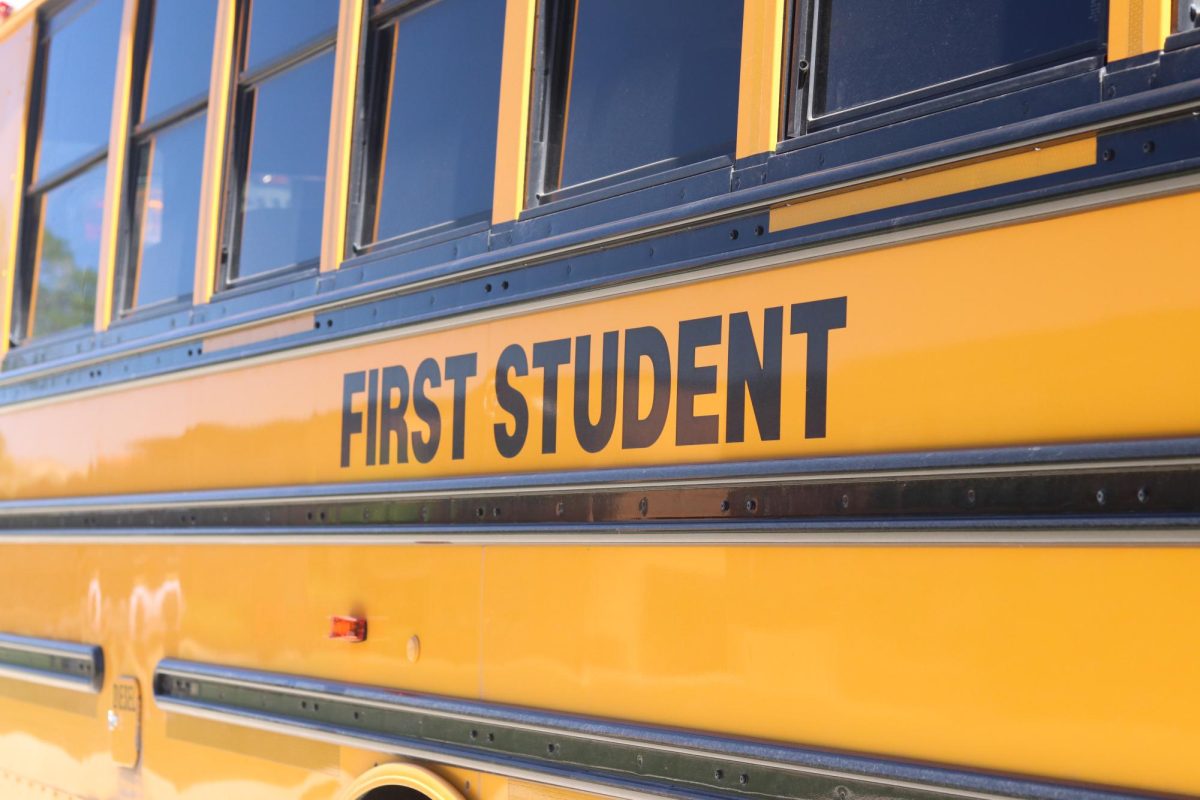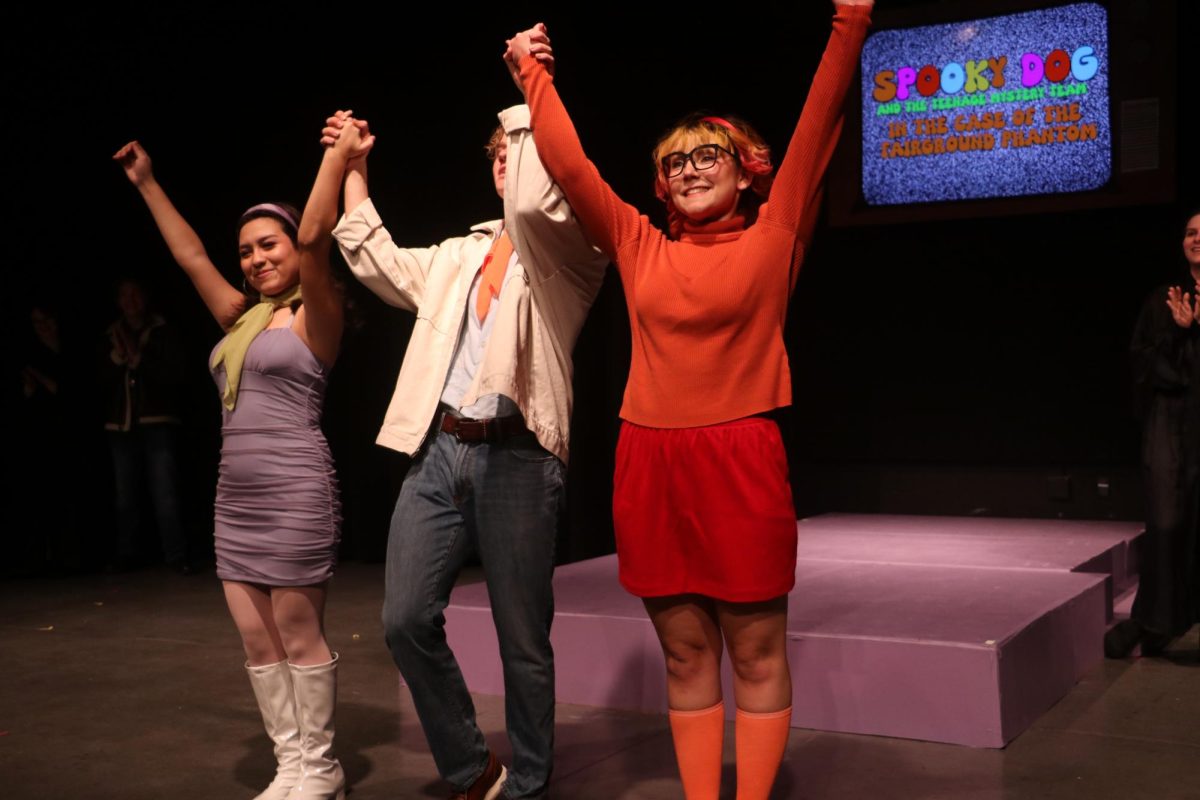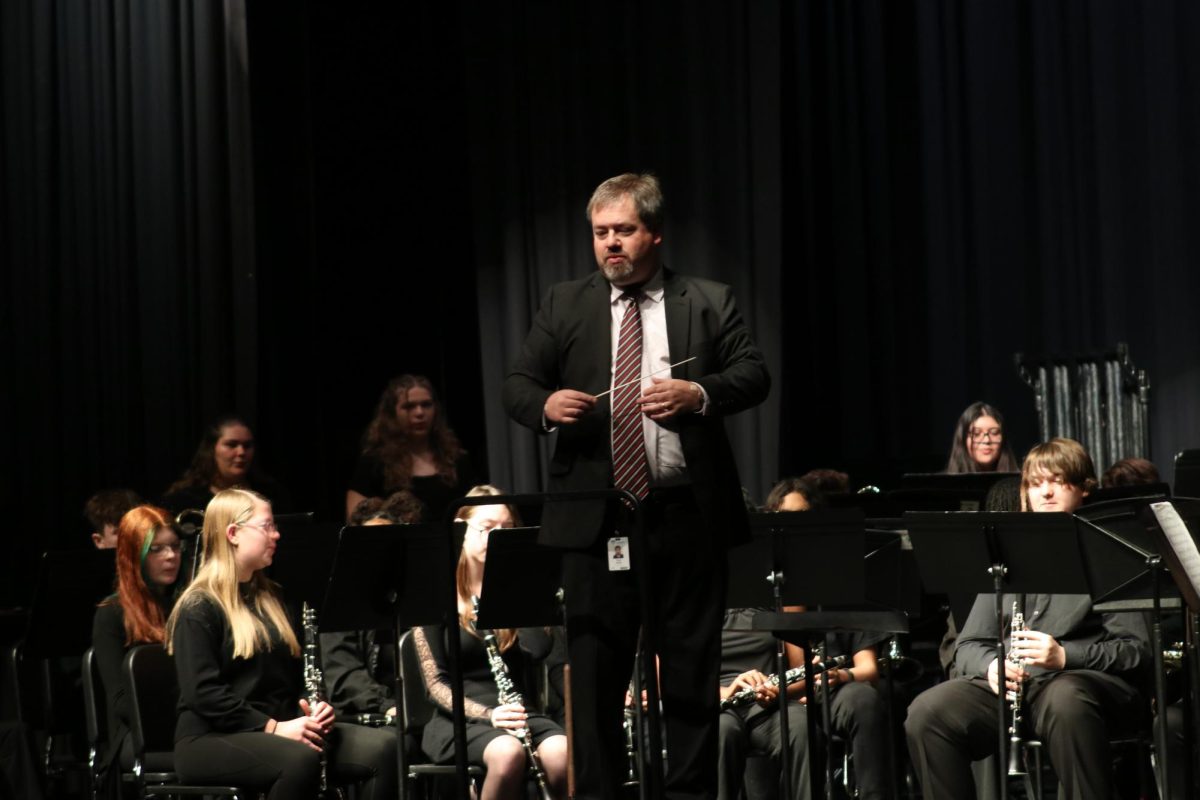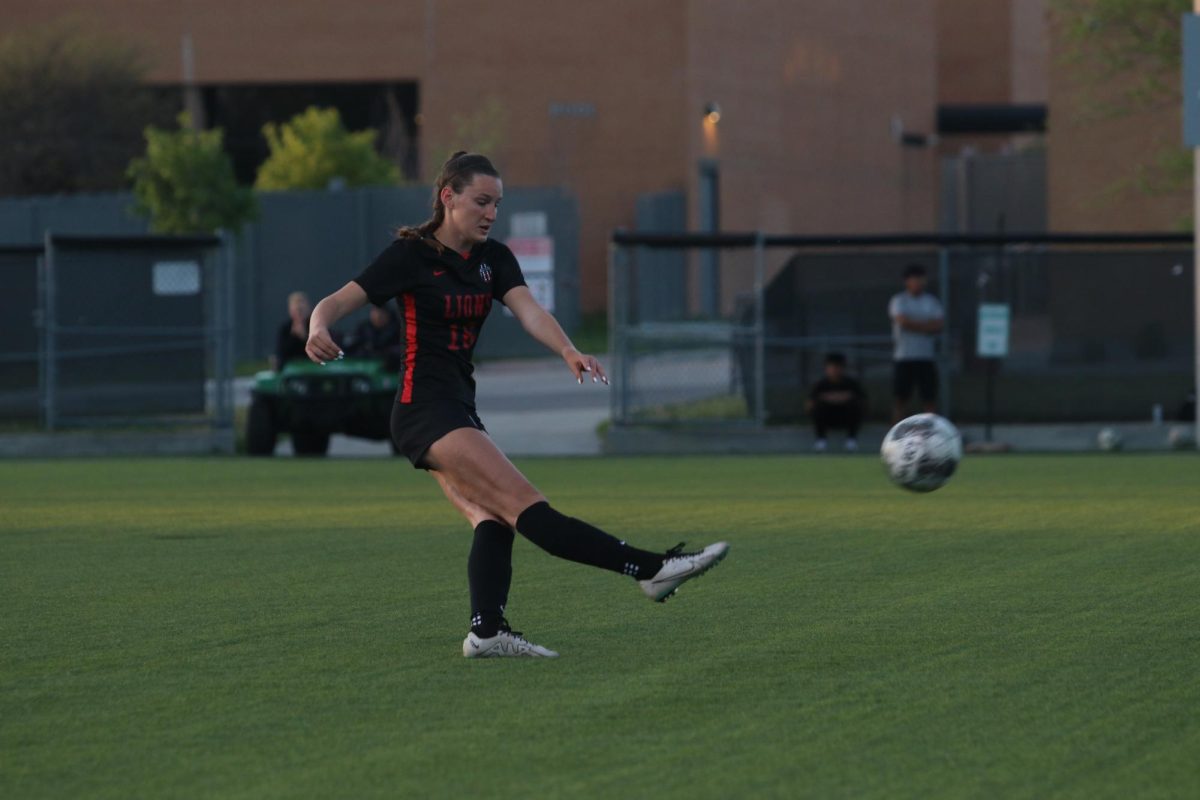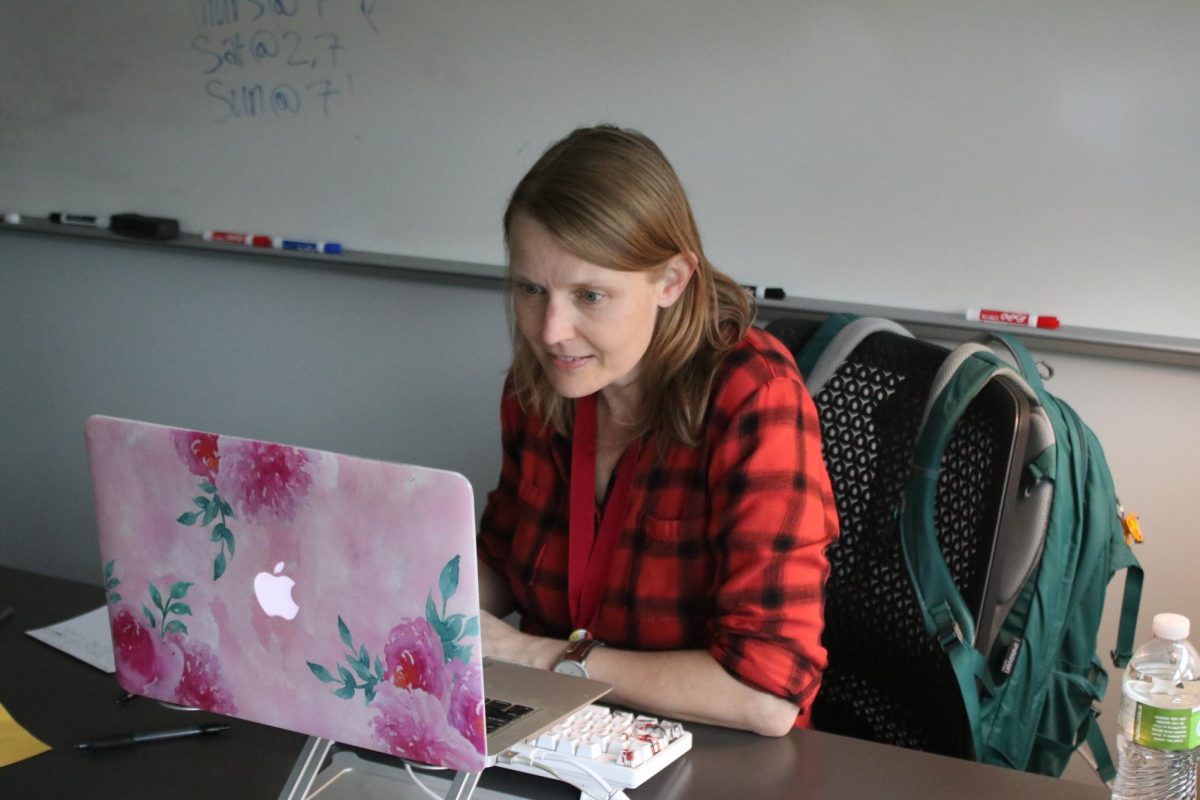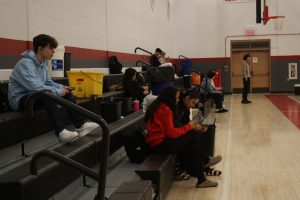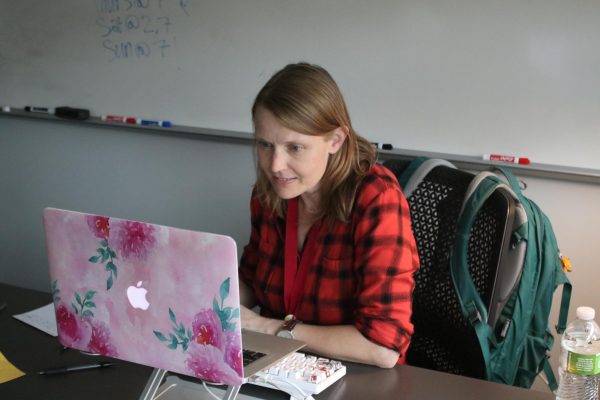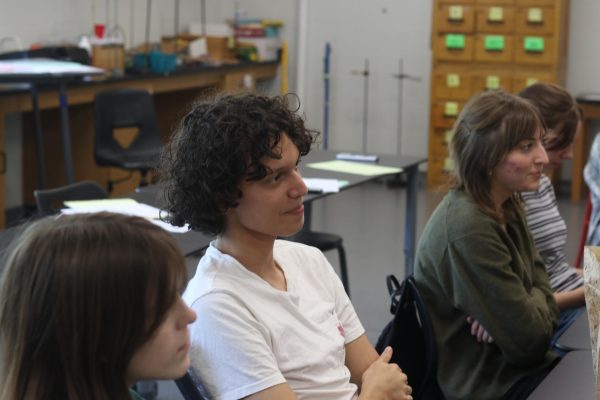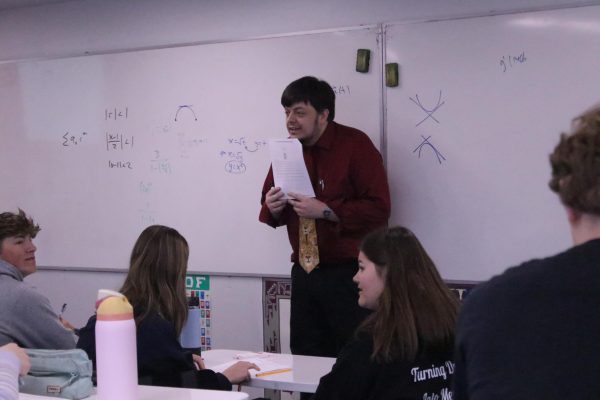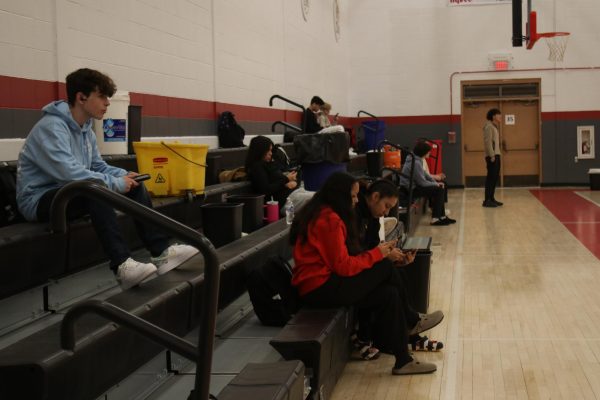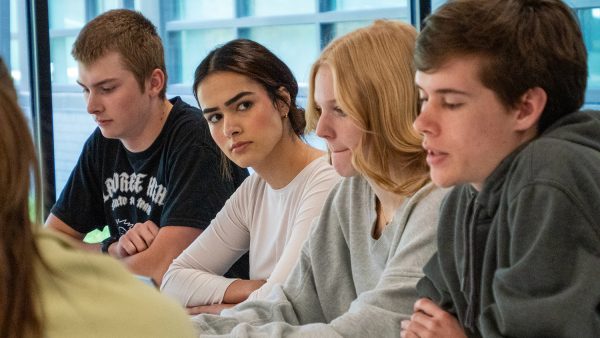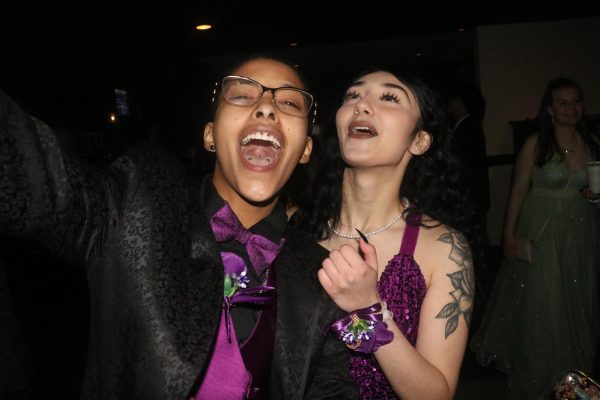End of DACA builds fear, anxiety
Program that protected undocumented immigrant children ending
Protest — Marching down Massachusetts Street, seniors Grayson Rodriquez and Tia Herrman join a demonstration on Sept. 7 to speak out against President Donald Trump’s decision to end the Deferred Action for Childhood Arrival program.
October 4, 2017
Lawrence students are among the hundreds of thousands feeling the effects of a decision to end a program that allowed undocumented young people to avoid deportation.
The Deferred Action for Childhood Arrivals is set to end in six months under a decision made earlier this month by President Donald Trump. Those in the program — sometimes referred to as DREAMers — are now waiting to see if Congress will take up legislation that would make the program law. Trump has encouraged Congress to act.
The decision is creating anxiety for some students at LHS.
Hispanic American Leadership Organization club sponsor Sylvia Trevino-Maack said it was hard for her club members to talk about it at their last meeting.
“We usually have a current event up for discussion,” she said. “I informally brought up if people wanted to share thoughts and feelings about DACA, and at that time kids were not ready to talk about it. They were expressing that they were frustrated. So I think the reaction is, obviously, negative, and there’s some frustration and probably some sadness involved.”
President Barack Obama instituted DACA by executive order in 2012, allowing people brought to the U.S. when they were younger than 16 to work and attend school.
For many, this announcement wasn’t a surprise. Since Trump took office in January, immigration has been a topic of interest, especially with Trump’s campaign promise to build a wall on the Mexico border. When Trump announced his presidential bid, he referred Mexicans as “rapists” and criminals.
A student, who The Budget isn’t naming because her parents are undocumented, said the stereotypes Trump uses aren’t true.
“I mean like, Trump says a lot of things on undocumented immigrants,” said the student, who had a family member who hoped to take part in DACA. “You know they’re not true or anything. We’re not all rapists, we aren’t killing people. But many people all over the country also immigrated here and come for a better life. That’s what we’re doing here. We come for a better life and better education.”
In order to be considered for the DACA program, applicants must have no criminal record, take part in background checks and pay a $495 fee. If accepted, they’re protected from being deported, and are able to receive things like a driver’s license and a work permit.
Students and other community members marched down Massachusetts Street on Sept. 7 to voice their support for DACA. Senior Grayson Rodriquez was there, chanting phrases like, “No hate, no fear, immigrants are welcome here.”
“I have been trying lately to…practice what [I] preach,” she said. “I guess rather than just saying what I believe, doing what I believe as well.”
Rodriquez said she went because she wanted to defend the education DACA recipients benefit from.
“Being someone who is Mexican, like the majority of these people are my people, you know, and it’s very important to me for them to get the education that they deserve,” Rodriquez said.
Trevino-Maack suggests students contact their representatives in Congress or come to HALO club if they’re looking for ways to support their peers.
“It’s important for other students to know that this is difficult, that it’s a challenge for some students to think that they can go to college,” Trevino-Maack said. “And encourage your friends to always think about a challenging future so that they can get motivated to look for answers and to not settle for any less than what they want to do.”
She also said effected students can come to her or other counselors if they feel unsafe or uncomfortable.
“If we don’t know the answer, we’re here to look for those answers,” she said.
Right now, the future for DREAMers is unsure. Beyond DACA, some families worry about increased efforts to deport undocumented immigrants.
“My mom doesn’t want to leave because she doesn’t want to go back to Mexico,” the anonymous student said. “It’s a better life here.”



